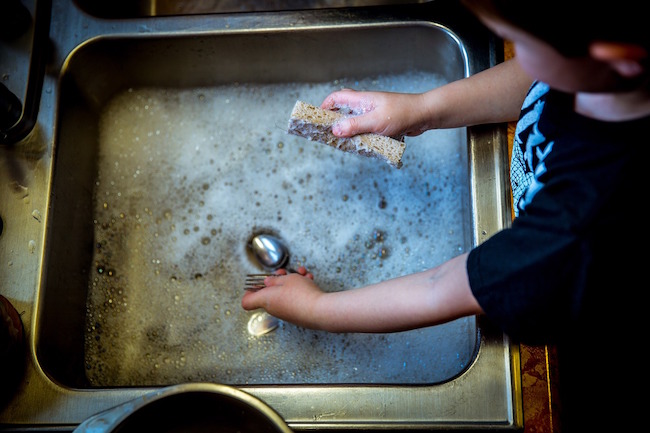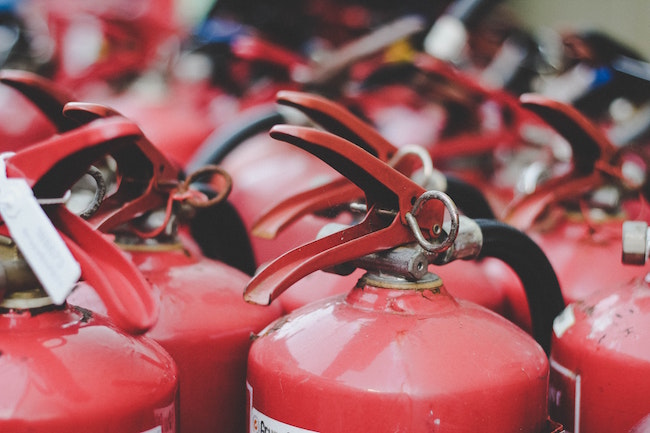
In any restaurant, the kitchen is often the most important part of the business. That’s because it’s where the magic happens. Everyone walking into a restaurant is there to eat.
Keeping your commercial kitchen clean and healthy at all times is obviously a health and safety requirement.
The busier the kitchens, the more effort and time you’ll have to put in for them to stay clean and operational.
Grease traps form an integral part of all commercial kitchens. They not only help to keep the plumbing or drainage working smoothly, but they also ease the dishwashing process.
And that’s why you have to make sure you pump your grease traps regularly during maintenance.
Failure to do so could cause a number of unpleasant outcomes. This article highlights a few of these dangers that can negatively affect the safety of your North Carolina kitchens.
Reasons Why You Need to Keep Your Grease Traps Well-Maintained
Yes, it’s quite easy to take grease traps for granted.
That’s because most owners don’t know how important they are for the health and safety of their commercial kitchens.
Are you among them? Have you been ignoring your grease traps?
Here are a few possible outcomes that may arise from failing to maintain your grease traps:
1. Clogging
When you neglect your grease traps, the first problem you’ll have to deal with is clogging.
That’s often because of the buildup of dirt, food, oils, grease and other waste products in your grease traps.
And you can’t operate a kitchen with clogged drains.
Clogging is not only a nasty inconvenience, but it can also halt the operations in your commercial kitchens.
This leads to lost revenue while you try to rectify the problem.

2. Health Risks
Having clogged grease traps also poses a number of health and safety risks to those working and eating in your restaurant.
If you choose to continue operating your restaurant with dirty and blocked grease traps, the food and utensils can get contaminated.
That means that your clients will also be at risk of getting sick. And that’s not good for business.
A wise person once said, “It takes years to build a good reputation but only minutes to ruin it.”
Serving contaminated meals may cost you a large percentage of your regular clientele or even get you sued and shut down.
When this happens, it will be almost impossible to regain the trust and reputation you once had.
Not to mention the costs you’ll incur to rebrand your restaurant.
3. Fire Hazards
Naturally, grease is highly flammable.
And a busy North Carolina commercial kitchen is the last place you want to have grease deposits lying around.
There are so many downsides to grease fires.
For starters, they are surprisingly easy to ignite, spread faster, and are also extremely hard to put out.

Scary, right?
Generally, this means that if a fire broke out in a kitchen with grease trap clogs, the losses can be massive; as compared to a fire in a well-maintained and grease-free kitchen.
And that’s why keeping your drains and grease traps free of grease is an important fire safety measure.
It not only protects your investment from massive fire damages but also offers a safe and conducive working and dining environment.
4. Awful Odors
Grease clogs can also result in awful odors. They are usually caused by the accumulation of waste products, food particles, dirty water, oils and grease.
Sometimes, these odors can be unbearable, unpleasant, and an indication of poor sanitation.
This not only creates an undesirable workplace environment for your employees, but it will also scare away clients.
Needless to say, bad odors can attract the attention of health inspectors. And they won’t hesitate to shut down your restaurant for health and safety reasons.
That’s why experts always recommend maintaining and cleaning your grease traps regularly.
5. Costly Consequences
The sad part about grease trap clogging is that it can lead to a thousand other problems in your restaurant.
It’s much more expensive to deal with a clogged grease trap and its multiple hazards than it is to maintain it.
As soon as your grease traps clog, you’ll incur the expense of finding a professional to unclog it. You might even have to close your business for a day or two, which results in lost revenue.
Sometimes the accumulation of grease can damage your drainage system or mess with your plumbing system.
That means that you’ll have to hire an inspector to check your restaurant’s food and water for contamination.
And if that’s not bad enough, losing customers due to bad experiences, odors, and unhealthy food translates to a reduction in profits.

If you get sued by an employee or client due to health issues caused by your clogged grease traps, you’ll also incur legal fees. You can even lose your restaurant’s license to operate.
Lastly, in case of a fire, your investment can go up in flames in just a matter of hours. And most insurance companies won’t cover damages resulting from negligence.
Clogged grease traps may seem like minor issues that you can afford to ignore, but they can actually cost you a lot in the long run.
That’s why it’s always recommended to keep your grease traps clean and maintained at all times.
What to do to Prevent Grease Trap Clogging
The best and only way to prevent grease trap problems is to exercise proper preventive maintenance measures and effective cleaning methods.
You can use a hydro-jet to scrape off even the smallest bits of grease deposits along your drainage system.
Experts recommend that grease trap pumping should be done regularly or when they are 25 to 33% full.
The speed at which your grease traps fill up depends on how busy your North Carolina restaurant is. If you run a busy joint, you may have to do grease pumping more frequently.
In summary, there are a lot of safety and health dangers of a grease trap clogged with grease, oils and other waste products. So, grease removal is essential.
The only way to steer clear of this is to make sure your grease trap is clean at all times.
It may seem like a lot of work. But, in the long run, it will be worth your time and effort.
Contact us today for more help!